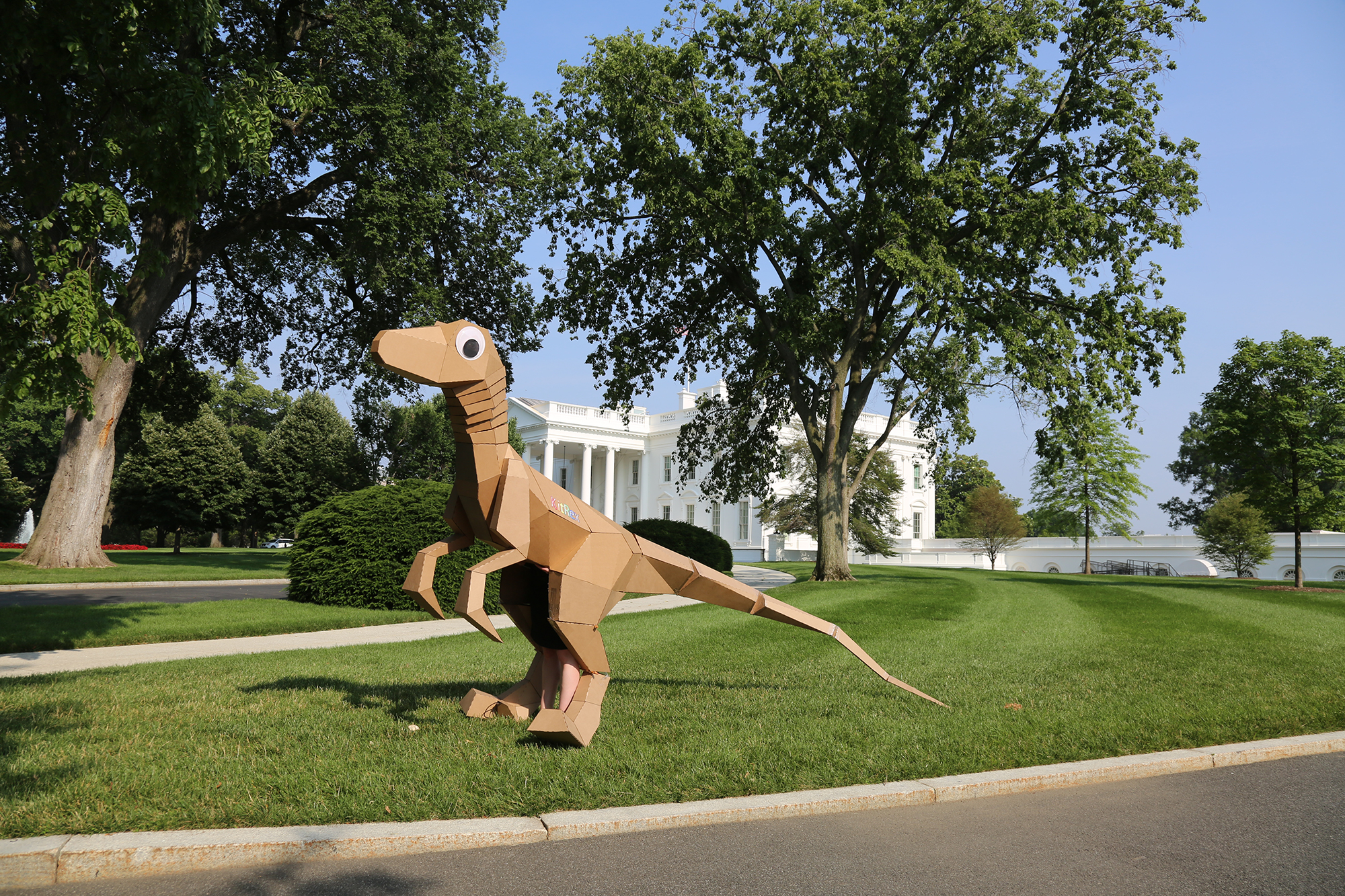

In June 2014, President Obama hosted the first-ever Maker Faire and launched the Nation of Makers initiative, an all-hands-on-deck call to make sure more students, entrepreneurs, and Americans of all backgrounds have access to a new class of technologies—such as 3D printers, laser cutters, and desktop machine tools—that are enabling more Americans to design, build, and manufacture just about anything. These new tools are helping reimagine “shop class” for the 21st century and giving students the types of hands-on STEM learning experiences that spark interest in science and technology careers. They are also fostering a “maker mindset”—dispositions and skills such as curiosity, collaborative problem-solving, and creative confidence that are vital to the modern innovation economy.
Building on that success, the Administration is announcing that it will celebrate a National Week of Making this June 17-23 alongside federal agencies and the broader community.
Last year, to celebrate a Week of Making, President Obama said:
“Makers and builders and doers— of all ages and backgrounds—have pushed our country forward, developing creative solutions to important challenges and proving that ordinary Americans are capable of achieving the extraordinary when they have access to the resources they need. During National Week of Making, we celebrate the tinkerers and dreamers whose talent and drive have brought new ideas to life, and we recommit to cultivating the next generation of problem solvers.”
The National Week of Making will coincide with the National Maker Faire on June 18-19 in Washington, D.C., that features makers from across the country and will include participation of numerous Federal Agencies such as the Department of Education, National Science Foundation, Small Business Administration, Department of Commerce, Department of Health and Human Services, National Endowment of the Arts, Institute of Museum and Library Services, National Aeronautics and Space Administration, Corporation for National and Community Service, and the Smithsonian Hirshhorn Museum and Sculpture Garden.
Today, the U.S. Department of Education (ED) is launching the Career and Technical Education (CTE) Makeover Challenge in Baltimore to encourage the creation of more maker spaces in American high schools. The challenge will invite high schools to create more “maker spaces” where students have the tools, space, and mentors help them learn to design, build, and innovate. With a prize pool of $200,000 that will be divided equally among as many as 10 prize recipients, the challenge calls upon eligible high schools to design models of “maker spaces.”
In collaboration with ED, and complementary to the Makeover Challenge, Digital Promise and Maker Ed are also launching the Maker Promise, a pledge for K-12 school leaders to support their students by dedicating a space for making, designating a champion for making, and displaying the results of making. Participating schools will then have access to a suite of resources to enable them to empower students to be makers of things, not just consumers of things.

To continue to expand upon this effort, here are some ways that you or your organization can join with others this year to celebrate makers of all ages:
- Individuals can volunteer to mentor and share their skills by hosting workshops or classes in areas of their community.
- Educators can create opportunities for interactive, hands-on learning in and outside of the classroom by establishing maker spaces, and empowering students to solve real-world problems.
- Companies can encourage making in their community by encouraging their employees to serve as mentors.
- Mayors and local governments can join with others and encourage companies, foundations, non-profits, schools, rec centers, libraries, and museums to get involved. Local leaders can also back initiatives that make it easier for entrepreneurs to manufacture their products locally.
Get involved by planning and hosting an event, workshop, or activity during the Week of Making in your community or submit your project for the National Maker Faire.
By working together, we can provide every child and adult in America with the tools, technologies, and resources they need to be part of the creative process and invent, create, and make a better, stronger, and more innovative future.
We want to hear from you! What new, measurable steps are you taking to support the #NationofMakers? Share your story by May 30th. We look forward to announcing progress on the President’s call to action during the Week of Making.
Tom Kalil is Deputy Director for Technology and Innovation at the White House Office of Science and Technology Policy.
Andrew Coy is Senior Advisor for Making at the White House Office of Science and Technology Policy.

